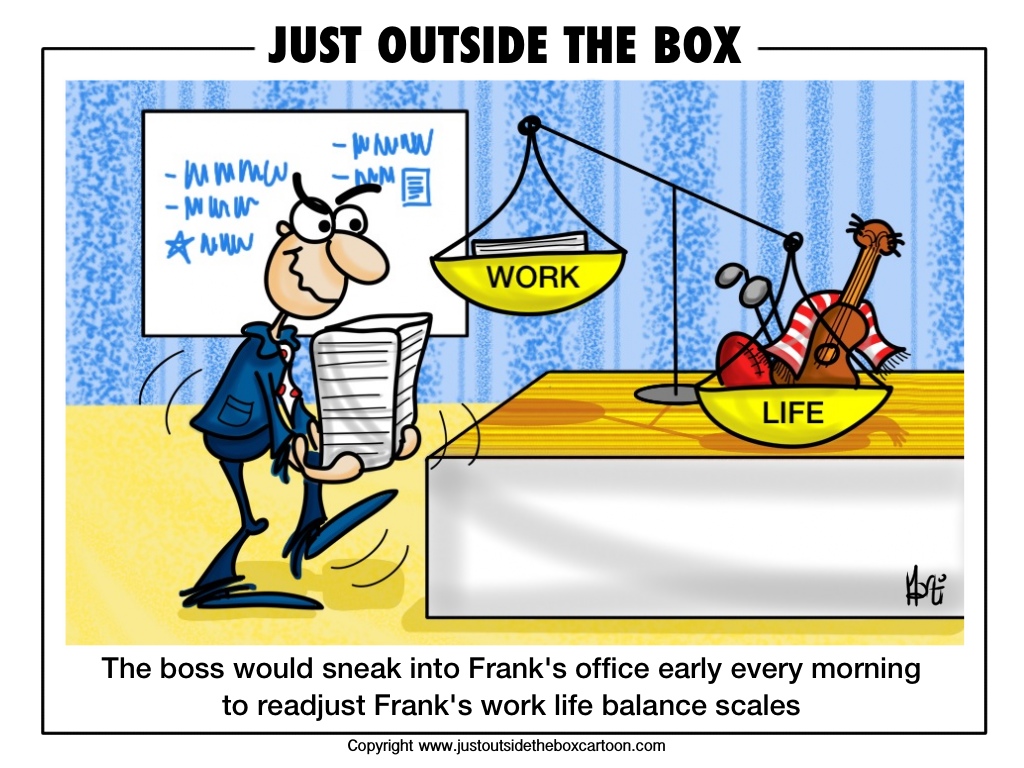Let’s start with some honesty: if you really want to ever achieve “work-life balance,” you need to come up with a new term for it. Re-brand that shit! Here’s the essential problem:
- Rank-and-file employees hear that and think “That’s an unicorn concept fueled by buzzwords.”
- Managers hear that and think, “Wait, people are gonna work less? But we have deliverables to hit…”
Both sides are frustrated.
Very few companies know how to get this idea/concept right, even though Towers Watson did a study on global workforces just last year that found something pretty simple and basic: if you do it right, it’s basically the third most valuable aspect of your company’s success.
Think about it like this: let’s say you make $80K, give or take. Your company is really good and nice to you and understands you have a life and a family. Some Fridays, even non-summer, you’re out by 2pm. Some company comes along and gives you $100K as an offer, but you meet the person who’d be your direct boss and they seem hard-driving and Type-A.
Are you going to take the extra $20,000, or stay where you are? Most people would probably stay. I would, personally. Admittedly no one is about to come along and offer me $100K after reading this blog, but you know, this is a hypothetical.
So for the first company — the one paying you $80,000 — this is a strategic advantage in a way. If you’re a good employee with organizational knowledge, your loss is a hit. (No one knows the exact bottom-line hit in terms of a specific dollar figure, but it’s a hit.) What’s more is … someone’s gonna rush to backfill you and probably whiff on the hire, and then your company’s shot in terms of effectiveness at that spot.
In this way, then, thinking about work-life balance (or whatever term you come up with) could actually be a strategic advantage for companies. Most people don’t think this way. They think they need to compete on margins or slashing headcount or customer service or marketing or CRM or whatever. They don’t think an advantage can lie within their people and how they treat their people. I don’t get this, but I’m also not a CEO and probably never will be … so what do I know?
Cali Williams Yost wrote this article for Harvard Business Review recently; she also wrote this book on “making what matters happen to you every day.” (A good concept, no?) The article she wrote for HBR is good, although it’s a lot of stuff to unpack about the different tests her company ran with 40 employees at another company. Here’s the broad takeaway:
- Find a new term (hey, we agree there!)
- Determine the strategic relevance of workload in the scope of an employee’s life
- Make a pilot plan
The third one is a good idea, maybe even a great idea. We live in this era where we’re supposed to be testing and measuring and analyzing everything, even if people are mostly just lip-servicing that idea and not really doing it. (You can actually improve your week-to-week life with simple analytics, as an aside.) If we’re serious about data and knowledge and testing, and we’re subsequently serious about our employees, why don’t we stop and design a pilot program around their balance?
The thing is, people mostly buy into the idea that work is virtue and they want to do well there … but oftentimes they have competing commitments, like “Go to the grocery store” or “Some family thing,” and they struggle to find a way to balance the now now now focus on deliverables that a lot of managers have with the things that actually matter in life (you know: your friends, your loved ones, time with them, experiences, etc.)
We talk a lot in the modern era about finding “purpose” at work, right? Companies think they get it, but they often don’t. We often don’t even treat our employees like adults; we treat them like children and assume if they’re not at a desk, they’re slacking off. This is dumb.
Think about it this way if you’re a manager, right? Do you want someone happy and generally productive working for you, or someone bitter and sad and frustrated? Probably the former, right? Well, how do you help someone be happy/productive within the context of work? It’s not that complicated: you give them freedom and you let them work on the areas where they feel strong. It’s not rocket science. Some companies get it.
Point being: your employees are your internal customers. In many ways, their happiness is more relevant than your external customers, even though most leaders/managers totally don’t get that. So if you treat your internal employees better, that can be a real strategic advantage. But I’m sure as you’re glancing at this post, you have to run to a 1:30 about Q3 margin projections, so … you probably don’t have time.

Reblogged this on Gr8fullsoul.